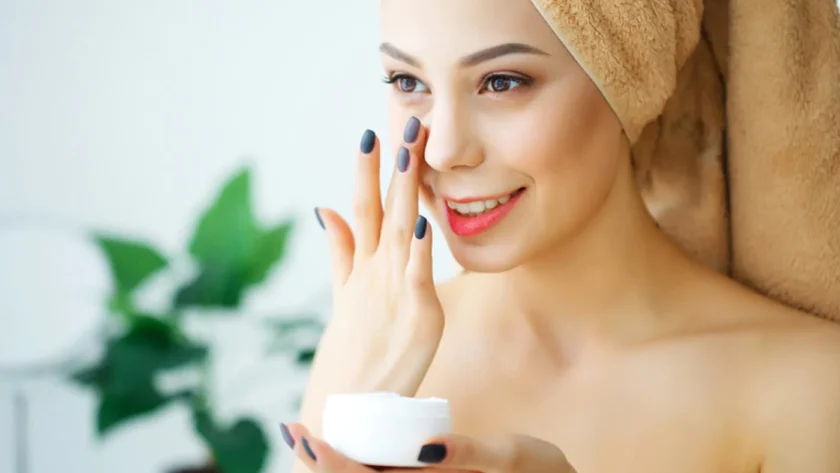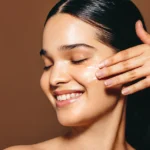Face creams, moisturizers, and makeup are some of the many skincare products that can give the skin a healthy-looking glow. However, healthy-looking skin can also be achieved naturally with behaviors such as getting quality sleep, exercising regularly, and eating fruits and vegetables.
Moisturizers, serums, and face creams may all have the ability to enhance the appearance of your skin. However, it’s also possible to get glowing skin without having to apply a single one of these products. The secret to achieving healthy-looking skin naturally is practicing healthy behaviors that nourish both your skin and body.
Here are 11 ways to improve your skin’s appearance without using skincare products and how to contact Lompoc Valley Medical Center for all your family’s healthcare needs.
1. Drink Lots Of Water
Drinking water can keep your skin moist and combat dryness and flaking. It may also help your skin maintain its elasticity and plumpness. This can reduce or delay signs of aging like fine lines and wrinkles.
Another benefit of drinking lots of water is that it helps flush toxins and waste out of your body. A buildup of toxins and waste can often contribute to acne and dull-looking skin.
Aim to drink more water throughout the day—especially on days that are hot or when you’re being more active. Replace sodas, coffee, sugary fruit juices, and alcohol with water.
2. Exercise Regularly
Exercise increases your blood flow and circulation. This allows your skin cells to receive a higher amount of oxygen and nutrients that contribute to a glowing skin tone. Like water, exercise also helps flush waste and toxins out of your body that can make your skin look tired and dull.
Make exercise a part of your lifestyle, and aim to do it on most days of the week. Do a combination of cardio and strength training exercises, and stick to activities you enjoy. Include your friends and family members to make your workouts more fun.
3. Eat More Fruits and Vegetables
Fruits and vegetables are loaded with antioxidants and other nutrients that can fight free radicals causing acne and other skin problems. Some fruits and veggies are also high in water content, which can hydrate your skin and make it look plumper. Watermelon, grapes, and celery are examples of fruits and veggies that contain lots of water.
Replace snacks like crackers and cereal bars with fruits and vegetables instead. Eat sliced carrots and celery sticks, and munch on berries between meals. Try to eat fruits and veggies at every meal, and watch your skin reap the benefits of these superfoods.
4. Increase Your Fiber Intake
Fiber can help move waste out of your body, which helps you maintain healthy-looking skin. It also increases blood flow and circulation so your skin cells can receive more nutrients.
Fortunately, most fruits and vegetables contain high amounts of fiber, so you may already be getting it in your diet if you’re eating these foods. If not, make a point of adding more fiber to your diet. Apples, beans, and pears are some of the many healthy foods that are high in fiber.
5. Get Quality Sleep
Sleep is your body’s time to repair itself, and this includes your skin. While you sleep, your skin will turn over dead skin cells and create new, healthy skin cells. Your skin will also produce new collagen while you sleep, which helps the skin stay plump. More collagen means fewer fine lines and wrinkles and less sagging.
Start going to bed earlier at night, including on the weekends. If you’re not comfortable at night, do what it takes to make sure you’re sleeping more comfortably. Invest in a high-quality mattress, buy sheets that are soft and cool, and hang blackout curtains if light and noises are waking you up at night.
Quality sleep does far more than help you achieve glowing skin. It can also reduce your risk for several health conditions, including heart disease, depression, and cancer.
6. Use a Silk-Like Pillowcase
Some fabrics have the potential to dry out and dehydrate your skin. For instance, cotton is highly absorbent and can strip the natural oils out of your skin. These oils, plus your dead skin cells, will stay trapped in your pillowcase until you wash it again. This increases your risk for acne and a dull-looking skin tone.
Consider using pillowcases made with satin or silk that can help your skin stay soft, clear, and bright. Some manufacturers make pillowcases geared specifically toward people who want to maintain healthy, young-looking skin.
Another benefit to using a silk-like pillowcase is that it can also make your hair look healthier. Pillowcases made with cotton and other absorbent fabrics can dry out your hair like they dry out your skin and make it look less shiny.
7. Manage Stress
Stress causes your body to release higher amounts of a stress hormone called cortisol. Cortisol increases oil production in your skin, which can lead to clogged pores and acne. Cortisol also increases inflammation in your body. According to a 2014 study published in Inflammation and Allergy Drug Targets, stress-induced inflammation can lead to skin conditions like eczema and psoriasis.
It’s normal to experience some stress from time to time. However, long-term stress can have serious health consequences because it causes you to have high levels of cortisol all the time.
Find ways to effectively manage and reduce stress. This may involve taking a warm bubble bath or listening to quiet, relaxing music. Sometimes, reducing stress may require you to make major life changes. In any case, do what it takes to eliminate the largest stressors in your life. This can improve your overall health—including your skin health.
8. Avoid Too Much Sun
Spending time in the sun may seem like an effective way to get a healthy-looking glow. Sunlight does offer health benefits for your body and skin—but only if you’re in it for a short period. Too much sun can lead to sunburn and exposes you to radiation that increases your risk for skin cancer. Excess sun also contributes to wrinkles, discoloration, and other signs of aging.
Avoid exposing your skin to the sun for long periods. When you do spend time in the sun, wear broad-spectrum sunscreen, a wide-brimmed hat, and sunglasses to protect your skin and your eyes. You should also consider wearing long-sleeved shirts and pants to protect the skin on your arms and legs.
9. Refrain From Touching Your Face
Hands and fingers usually contain high amounts of oil and dirt—even if you recently washed them. When you touch your face, this debris will transfer from your fingers to the skin and clog pores—increasing the risk for acne.
Try to avoid touching your face with your fingers and the palms of your hands at all costs. If you have an itch on your face, try to use the back of your hand or a shirt sleeve to relieve it.
Also, pay attention to whether you practice certain habits where you touch your face with your hands, like covering your mouth when you laugh. Some people may not be aware that they have these types of habits and are stumped regarding why they have skin problems like acne.
10. Shower Using Warm Water
A hot bath or shower may feel amazing after a long day or when you feel like relaxing. However, hot water can strip moisture from your skin and leave it dry and dehydrated. It can also lead to flaking skin that requires the use of a moisturizer.
Consider bathing with lukewarm water instead. Lukewarm water is far less harsh on your skin and won’t leave it as dry or dehydrated. Additionally, use gentle soaps on your skin that won’t lead to irritation or breakouts. Avoid harsh soaps that contain perfumes and harmful toxins like dyes that can further damage your skin and increase signs of aging.
11. Drink Less Alcohol
Alcohol dehydrates your skin and body. It can make fine lines and wrinkles more pronounced and leave your skin looking gray and dull.
Drinking high amounts of alcohol regularly can also lead to nutritional deficiencies. This can prevent your skin from getting the nutrients it needs to maintain a healthy-looking glow. For instance, alcohol can deplete your body’s levels of several B vitamins—including folic acid. Folic acid helps your skin retain moisture.
Too much alcohol is also associated with higher levels of inflammation. Inflammation is linked to a variety of skin conditions, including psoriasis and eczema.
If you drink alcohol, try to limit your intake to no more than one or two drinks a day. According to the CDC, moderate drinking is defined as two drinks or less in a day for men, and one drink or less in a day for women. It defines heavy drinking as 15 drinks or more per week for men and as eight drinks or more per week for women.
The Way to Have Healthy Shining Skin



